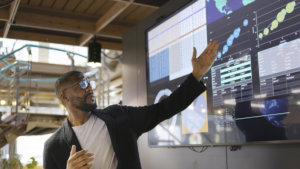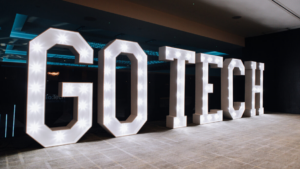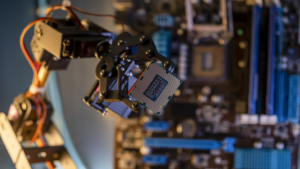2020 workforce to be dominated by Millennials

It’s predicted that by 2020 the global workforce will be dominated by Millennials (35%) and Generation X (35%), with Baby Boomers only making up 6%.
For business owners navigating this gap in the workplace, recruiting talent is one challenge. The other is successful employee management and retention. Instant Offices’ have considered what is important to each age group, and how employers approach the age gap.
Workplace gaps in generational diversity
- Baby Boomers: born between 1946 and 1964
- Gen X: born between 1965 and 1980
- Millennials or Gen Y: born between 1981 and 1996
- Gen Z: born mid-1990’s to mid-2000’s
Attitudes and aspirations in the workplace
- Baby Boomers: aspire to have job security and think careers are defined by employers
- Gen X: aspire to have a work-life balance and although are loyal to a profession will not necessarily stick with the same employer
- Millennials or Gen Y: aspire to have freedom and flexibility – they are digital entrepreneurs
- Gen Z: aspire to have security and stability; they are career multitaskers taking advantage of the gig economy
Differences between generational needs
- Eight in 10 Millennials look for a manager to act as a mentor or coach
- Baby Boomers want a boss to be ethical, fair and consistent
- 61% of Generation X, and 55% of Millennials think team consensus is important
- When it comes to motivation, Boomers are attracted to more money and working in an innovative environment, while Millennials look for company values
Across the generations, happiness at work means different things to different people. 18-34-year-olds want to feel appreciated, have pride in the organisation and a feel sense of accomplishment are the top three factors. For 55+-year-olds, being treated with fairness and respect, feeling appreciated and good team management are at the top of their lists.
Where Millennials thrive against other generations
Having grown up with the internet, it’s no secret that Gen Y and Z are digitally native. Where their older counterparts may fall short of grasping all digital changes, seven in 10 managers feel these younger generations are equipped with the skills the older generations are not. In fact, 40% of employers admit to relying on younger employees and graduates for their digital skills.
What do the generations have in common?
Surprisingly despite their differences, and thoughts about the workplace, there are some similarities between the working generations.
- Flexible schedules and flexible working: Around 74% of Millennials, and 94% of Baby Boomers, want a flexible schedule that works for them. The popularity of the ‘standard’ 9-5 appears to be on the decline as it looks as if most employees are interested in flexible hours and telecommuting. In addition, hot-desking and shared spaces appeal more to Millennials than rows of desks and fixed computers, which Baby Boomers would be more used to.
- Making an impact: Gen Y employees are willing to stay at a company that shows appreciation for their work. Millennials, Gen X and Baby Boomers all aspire to make an impact within an organisation, as well as be recognised for their work. Managers should, therefore, start actively empowering and encouraging employees of all generations to succeed.
- Motivation: The common thread that ties all employees together when it comes to company loyalty and motivation is simple – appreciation. When it comes to employee tenure, companies with a strong recognition programme have a lower staff turnover. While many employees prefer value, recognition and appreciation over an annual bonus or any other company perk, a simple ‘thank you’ can be the best motivator of all. A recent survey has also found Millennials prioritise businesses that have a double bottom line, with 74% admitting they want the values of the business to match their own.
According to research, 40% of employers admit to relying on younger employees and graduates for their digital and tech skills instead of training mid to senior employees. Given the right opportunity and with the proper guidance, the digitally skilled youth of the country could potentially provide a solution to organisations struggling to upskill their workforce to compete in the digital age.



